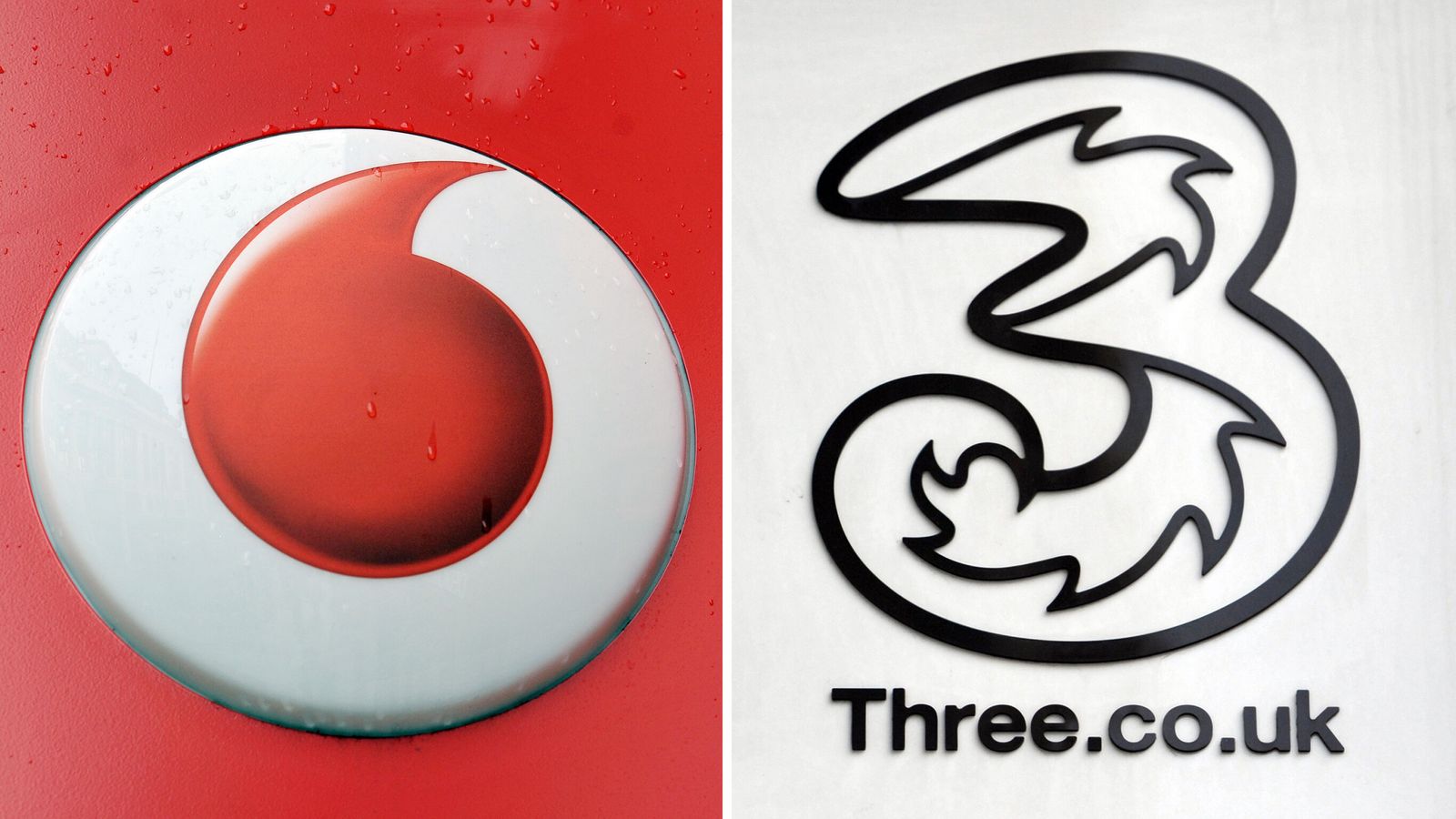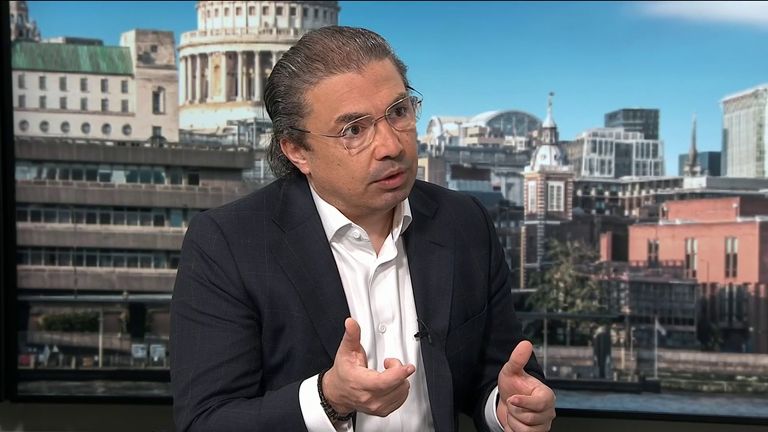Plans by Vodafone and Three to merge could lead to higher prices for millions of mobile phone users, the competition watchdog has warned.
The proposed £15bn deal, announced last year, would bring 27 million customers together under a single provider.
But the Competition and Markets Authority (CMA) said it could lead to “higher prices and reduced quality” because it risks reducing rivalry between operators.
Money blog: Where house prices and rents are going up, and where they’re falling
It comes after the regulator carried out an initial review into the deal, which would create the UK’s largest mobile network.
The CMA has now given the companies five working days to respond to its concerns – otherwise an in-depth investigation will be launched which could end in the merger being blocked.
The regulator’s Julie Bon said: “Millions of people in the UK depend on effective competition in the mobile market in order to access the best deals for them.
“While Vodafone and Three have made a number of claims about how their deal is good for competition and investment, the CMA has not seen sufficient evidence to date to back these claims.”
She added: “Our initial assessment of this deal has identified concerns which could lead to higher prices for customers and lower investment in UK mobile networks.
“These warrant an in-depth investigation unless Vodafone and Three can come forward with solutions.”
Vodafone and Three said they would review the CMA’s concerns and “engage constructively”.
The companies have argued the deal will allow them to increase investment and better compete with their major rivals, BT/EE and Virgin Media-O2.
Read more from Sky News:
New Brexit border post could be demolished
Bahrain state fund takes full ownership of McLaren
Retail sales flatline as wet weather dampens demand
The CMA said Vodafone and Three both provided “important alternatives for mobile customers” and noted they had made significant investments in recent years, including with the rollout of 5G services.
The watchdog described Three as “generally the cheapest of the four mobile network operators” but warned this could be jeopardised as the merger might “reduce rivalry between mobile operators to win new customers”.
It also raised concerns the deal may make it difficult for smaller ‘virtual’ operators, such as Sky Mobile, Lebara and Lyca, to negotiate good deals for their own customers, as it would reduce the number of mobile network operators that would host them.
Vodafone UK chief executive officer Ahmed Essam said: “By merging our two companies, we will be able to invest £11bn to help the UK realise its ambitions to be a world leader in next-generation 5G technology and increase competition across the industry.
“This transaction will create an operator with the scale required to take on BT/EE and Virgin Media-O2, give MVNOs (mobile virtual network operators) greater choice in the wholesale market and is in the wider interests of customers, competition and the country.”
Three UK chief executive officer Robert Finnegan said: “The current market structure is holding the UK back, which is not good for customers or competition.
“By creating a third player with the necessary scale to invest, the combination of our two companies will deliver one of Europe’s most advanced networks and move the UK into the digital fast lane, benefiting customers from day one.”
If the CMA does launch a more in-depth review – called a “phase two investigation” – an independent panel will spend at least 24 weeks reviewing the merger before a final decision on the deal is made.


